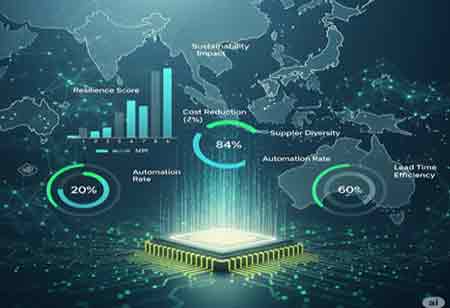THANK YOU FOR SUBSCRIBING
Advantages of Implementing RPA in the Healthcare Sector
Following its success in many areas, RPA is a highly sought-after technology that's rapidly getting implemented across businesses due to the numerous benefits it provides.

By
Apac CIOOutlook | Tuesday, December 14, 2021
Stay ahead of the industry with exclusive feature stories on the top companies, expert insights and the latest news delivered straight to your inbox. Subscribe today.
Following its success in many areas, RPA is a highly sought-after technology that's rapidly getting implemented across businesses due to the numerous benefits it provides.
FREMONT, CA: Robotic Process Automation(RPA) is the current buzzword in most businesses. Following its success in many areas, RPA is a highly sought-after technology that's rapidly getting implemented across businesses due to the numerous benefits it provides.
Robotics, machine learning, and artificial intelligence are next-generation technologies that are getting deployed in the workplace to benefit enterprises that want to fulfill their goals and stay competitive.
RPA as technology is gradually gaining traction in many industries, including healthcare. However, compared to the banking and retail sectors, which were among the first to adopt new technology, the healthcare industry took its time. Recent factors, such as rising expenses, have prompted the implementation of RPA to drive down costs and minimize waste in healthcare delivery.
Healthcare is one sector where this technology is assisting in streamlining procedures. Robotic Process Automation has enabled healthcare professionals to move laborious, time-consuming, and labor-intensive tasks from humans to robots, resulting in favorable outcomes.
Advantages of RPA in the Healthcare Sector
Manpower Savings
Machines may save a significant amount of time, and automation can be helpful to replace labor-intensive and repetitive operations that people previously performed. Employees will not be fired outright but will get promoted to more advanced jobs for which they are more suited.
Elimination of Waste / Save Environment
Manual inputs into registers and sheets and entries into electronically kept databases may get made to preserve hospital records. RPA adoption will aid in reducing the use of stationery and assist enterprises in relying less on paper. It will reduce waste and help the environment.
Improved Quality and Consistency
Robots do not get tired or weary of completing tedious, repetitive work around the clock, and they can help maintain uniformity in care actions. A Texas hospital observed that increased automation in medical records, order input, claim processing, and decision assistance was associated with reducing problems and expenditures.





